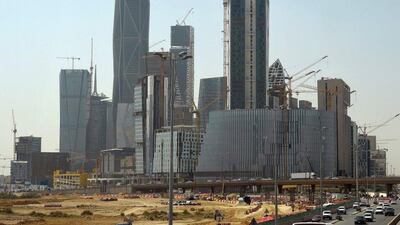Government bank deposits continued to fall in Saudi Arabia and the UAE last month, as the low oil price hits the balance sheets of lenders in both countries.
In Saudi Arabia, government deposits fell 6.6 per cent in February, from 291bn riyals (Dh284.93bn) in January to 271.8bn riyals in February, according to data from the Saudi Arabian Monetary Authority (Sama), the kingdom’s central bank.
M3, a measure of the money supply, fell for the first time in more than a decade, Sama data also showed.
M3 measures cash balances and bank deposits across the economy held by individuals, companies and the government.
Withdrawals from Saudi ATMs also fell 13.3 per cent year-on-year, which could be a sign that consumers are spending less, economists said. Individuals have drawn down on their current accounts as the economic slowdown bites, central bank data shows.
In the UAE, monthly central bank data showed that government deposits have fallen 15 per cent year-on-year.
The Government and government companies held Dh158 billion in deposits at the UAE’s Central Bank in February.
The low oil price has led Arabian Gulf governments to withdraw cash from the banking sector, as they seek to finance growing fiscal deficits. Saudi Arabia ran a fiscal deficit of 15 per cent of GDP in 2015, and is expected to run a deficit of 13 per cent this year.
Drawing down on its financial reserves has reduced the Saudi government’s need to withdraw cash from local banks, said Alp Eke, a senior economist at National Bank of Abu Dhabi.
“Sama was more protective of the banking industry, and absorbed most of the impact of the declining oil revenues by liquidating foreign reserves,” Mr Eke said.
abouyamourn@thenational.ae
Follow The National's Business section on Twitter

